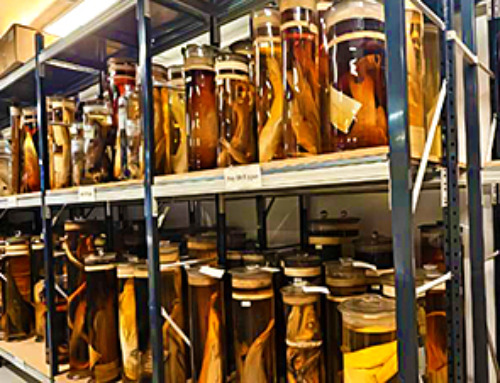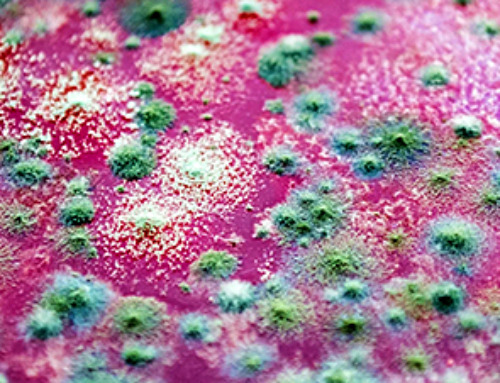A new genetic study shows that just one extra cup of instant coffee a day could significantly increase your risk of developing dry AMD, shedding fresh light on how our daily beverage choices may shape long-term eye health.
In a recent study published in the journal Food Science & Nutrition, researchers utilized an extensive genomic dataset comprising more than 500,000 individuals, along with advanced genetic correlation and Mendelian randomization analyses, to investigate the causal associations between coffee consumption and the risk of age-related macular degeneration (AMD).
Study findings revealed a statistically significant genetic causal association between instant coffee intake and the subsequent risk of dry AMD. In contrast, ground coffee and decaffeinated coffee demonstrated no such associations, highlighting that based on this research, adverse coffee-AMD links appear to be exclusive to instant coffee. The study found that each standard deviation increase in instant coffee consumption corresponded to a substantially increased risk of the disease.
Background
Age-related macular degeneration (AMD) is an ocular disease characterized by damage to the macula, resulting in blurry vision that progressively deteriorates. AMD is the leading cause of vision loss among older people worldwide, estimated to impact 8.7% of adults (196 million cases in 2020). As the global population ages, AMD prevalence is expected to surge in the coming decades (~240 million cases by 2040).
While recent genetic research has identified several correlations between individual genotypes (susceptibility genes) and AMD development, the disease’s underlying mechanisms and modifiable risk factors (health behaviors like diet and physical activity) remain comparatively understudied. While dietary supplements and clinical interventions (e.g., laser treatment) can slow AMD progression, the condition is irreversible, underscoring the need for prevention-focused research and policy.
While only a handful of epidemiological studies have investigated the role of coffee, one of the world’s most popular beverages, in the pathology of AMD, they report mixed and sometimes conflicting results. Most of these investigations are cohort studies and are therefore vulnerable to biases (e.g., reverse causation, confounding factors), which limits their clinical reliability. Furthermore, none of these studies have differentiated between coffee subtypes (decaffeinated, ground, or instant).
About the study
Biobank & Finngen) in tandem with genetic correlation and Mendelian randomization (MR) analyses to establish causal associations between different forms of coffee consumption and subsequently AMD risk.
Coffee consumption data were obtained from the UK Biobank GWAS summary statistics, including type (total coffee, n = 105,037; decaffeinated, n = 62,072; ground, n = 72,276; or instant, n = 180,764) and amount of coffee intake. AMD data were obtained from the Finngen GWAS dataset, including wet AMD (case = 5,890, control = 300,152) and dry AMD (case = 7,589, control = 298,486). The study’s Mendelian Randomization approach used genetic variants as a proxy for coffee intake, a method that inherently minimizes the influence of traditional confounding factors like diet and lifestyle. This approach relies on key assumptions, including that the selected genetic variants influence AMD only through their effect on coffee consumption and not through other biological pathways (a concept known as pleiotropy), for which the researchers conducted sensitivity tests.
The study design and analyses adhered to the Strengthening the Reporting of Observational Studies in Epidemiology using Mendelian Randomization (STROBE-MR) guidelines and comprised the following:
First, linkage-disequilibrium score regression (LDSC) analyses were used to quantify whether genetic variants associated with subtype-specific coffee intake also correlate with AMD risk. Second, two-sample univariable Mendelian randomization (UVMR) models were used to assess causality using GWAS-derived single-nucleotide polymorphisms (SNPs). Finally, Bayesian colocalization analysis was used to identify shared genetic variants between subtype-specific coffee consumption and AMD risk.
Study findings
Genetic correlation (LDSC) analyses revealed a significant overlap between the genetic predisposition to instant coffee intake and the subsequent risk of dry AMD, suggesting shared DNA signals between the two traits across the human genome. In contrast, other subtypes of coffee consumption showed no such correlation. Furthermore, no association was observed between coffee intake and the risk of wet AMD.
UVMR analyses confirmed these findings and established a causal link. Specifically, each standard deviation increase in instant coffee consumption was associated with a 7.92-fold increased risk of dry AMD (Odds Ratio [OR] = 7.92; 95% Confidence Interval: 1.79 to 35.15; p = 0.006). After statistical correction for multiple comparisons, the finding remained significant (adjusted p = 0.048). Sensitivity analyses were also conducted to support the robustness of these results.
Colocalization analysis did not detect any shared genetic variants or genome regions between coffee intake and AMD incidence. These findings suggest that processing byproducts, additives, or chemical alterations resulting from dehydration and reconstitution methods unique to instant coffee may contribute to the risk of dry AMD. The paper suggests that instant coffee can contain acrylamide, oxidized lipids, and other compounds not present in fresh brews.
Conclusions
The present study establishes a statistically significant causal genetic association between the consumption of instant coffee and the risk of dry AMD, though the precise magnitude of this risk has a wide margin of uncertainty, as indicated by the broad confidence interval. While the study datasets were derived from a predominantly European cohort, thereby limiting their global generalizability, the causal nature of the observed results prevents their dismissal due to dietary confounds.
Study results suggest that patients with early-stage AMD and individuals with a genetic predisposition to AMD might consider reducing their intake of instant coffee, opting instead for fresh brews. Clinicians and public health policymakers should weigh this evidence when advising patients about the potential drawbacks of highly processed foods like instant coffee.
- Jia, Q., Zha, Z., Li, S., Zhang, Y., Ke, L., & Liu, S. (2025). Genetic Correlation and Mendelian Randomization Analyses Support Causal Relationships Between Instant Coffee and Age‑Related Macular Degeneration. Food Science & Nutrition, 13(6), DOI: 10.1002/fsn3.70439, https://onlinelibrary.wiley.com/doi/10.1002/fsn3.70439
News
Scientists Find Way to Turn Tumor-Protecting Cells Into Cancer Killers
A new cancer therapy wakes up immune cells inside tumors and turns them against cancer. Tumors contain immune cells called macrophages that are naturally capable of attacking cancer. However, the tumor environment blocks these [...]
Analyzing Darwin’s specimens without opening 200-year-old jars
Scientists have successfully analyzed Charles Darwin's original specimens from his HMS Beagle voyage (1831 to 1836) to the Galapagos Islands. Remarkably, the specimens have been analyzed without opening their 200-year-old preservation jars. Examining 46 [...]
Scientists discover natural ‘brake’ that could stop harmful inflammation
Researchers at University College London (UCL) have uncovered a key mechanism that helps the body switch off inflammation—a breakthrough that could lead to new treatments for chronic diseases affecting millions worldwide. Inflammation is the [...]
A Forgotten Molecule Could Revive Failing Antifungal Drugs and Save Millions of Lives
Scientists have uncovered a way to make existing antifungal drugs work again against deadly, drug-resistant fungi. Fungal infections claim millions of lives worldwide each year, and current medical treatments are failing to keep pace. [...]
Scientists Trap Thyme’s Healing Power in Tiny Capsules
A new micro-encapsulation breakthrough could turn thyme’s powerful health benefits into safer, smarter nanodoses. Thyme extract is often praised for its wide range of health benefits, giving it a reputation as a natural medicinal [...]
Scientists Develop Spray-On Powder That Instantly Seals Life-Threatening Wounds
KAIST scientists have created a fast-acting, stable powder hemostat that stops bleeding in one second and could significantly improve survival in combat and emergency medicine. Severe blood loss remains the primary cause of death from [...]
Oceans Are Struggling To Absorb Carbon As Microplastics Flood Their Waters
New research points to an unexpected way plastic pollution may be influencing Earth’s climate system. A recent study suggests that microscopic plastic pollution is reducing the ocean’s capacity to take in carbon dioxide, a [...]
Molecular Manufacturing: The Future of Nanomedicine – New book from Frank Boehm
This book explores the revolutionary potential of atomically precise manufacturing technologies to transform global healthcare, as well as practically every other sector across society. This forward-thinking volume examines how envisaged Factory@Home systems might enable the cost-effective [...]
New Book! NanoMedical Brain/Cloud Interface – Explorations and Implications
New book from Frank Boehm, NanoappsMedical Inc Founder: This book explores the future hypothetical possibility that the cerebral cortex of the human brain might be seamlessly, safely, and securely connected with the Cloud via [...]
Global Health Care Equivalency in the Age of Nanotechnology, Nanomedicine and Artificial Intelligence
A new book by Frank Boehm, NanoappsMedical Inc. Founder. This groundbreaking volume explores the vision of a Global Health Care Equivalency (GHCE) system powered by artificial intelligence and quantum computing technologies, operating on secure [...]
Miller School Researchers Pioneer Nanovanilloid-Based Brain Cooling for Traumatic Injury
A multidisciplinary team at the University of Miami Miller School of Medicine has developed a breakthrough nanodrug platform that may prove beneficial for rapid, targeted therapeutic hypothermia after traumatic brain injury (TBI). Their work, published in ACS [...]
COVID-19 still claims more than 100,000 US lives each year
Centers for Disease Control and Prevention researchers report national estimates of 43.6 million COVID-19-associated illnesses and 101,300 deaths in the US during October 2022 to September 2023, plus 33.0 million illnesses and 100,800 deaths [...]
Nanomedicine in 2026: Experts Predict the Year Ahead
Progress in nanomedicine is almost as fast as the science is small. Over the last year, we've seen an abundance of headlines covering medical R&D at the nanoscale: polymer-coated nanoparticles targeting ovarian cancer, Albumin recruiting nanoparticles for [...]
Lipid nanoparticles could unlock access for millions of autoimmune patients
Capstan Therapeutics scientists demonstrate that lipid nanoparticles can engineer CAR T cells within the body without laboratory cell manufacturing and ex vivo expansion. The method using targeted lipid nanoparticles (tLNPs) is designed to deliver [...]
The Brain’s Strange Way of Computing Could Explain Consciousness
Consciousness may emerge not from code, but from the way living brains physically compute. Discussions about consciousness often stall between two deeply rooted viewpoints. One is computational functionalism, which holds that cognition can be [...]
First breathing ‘lung-on-chip’ developed using genetically identical cells
Researchers at the Francis Crick Institute and AlveoliX have developed the first human lung-on-chip model using stem cells taken from only one person. These chips simulate breathing motions and lung disease in an individual, [...]





















